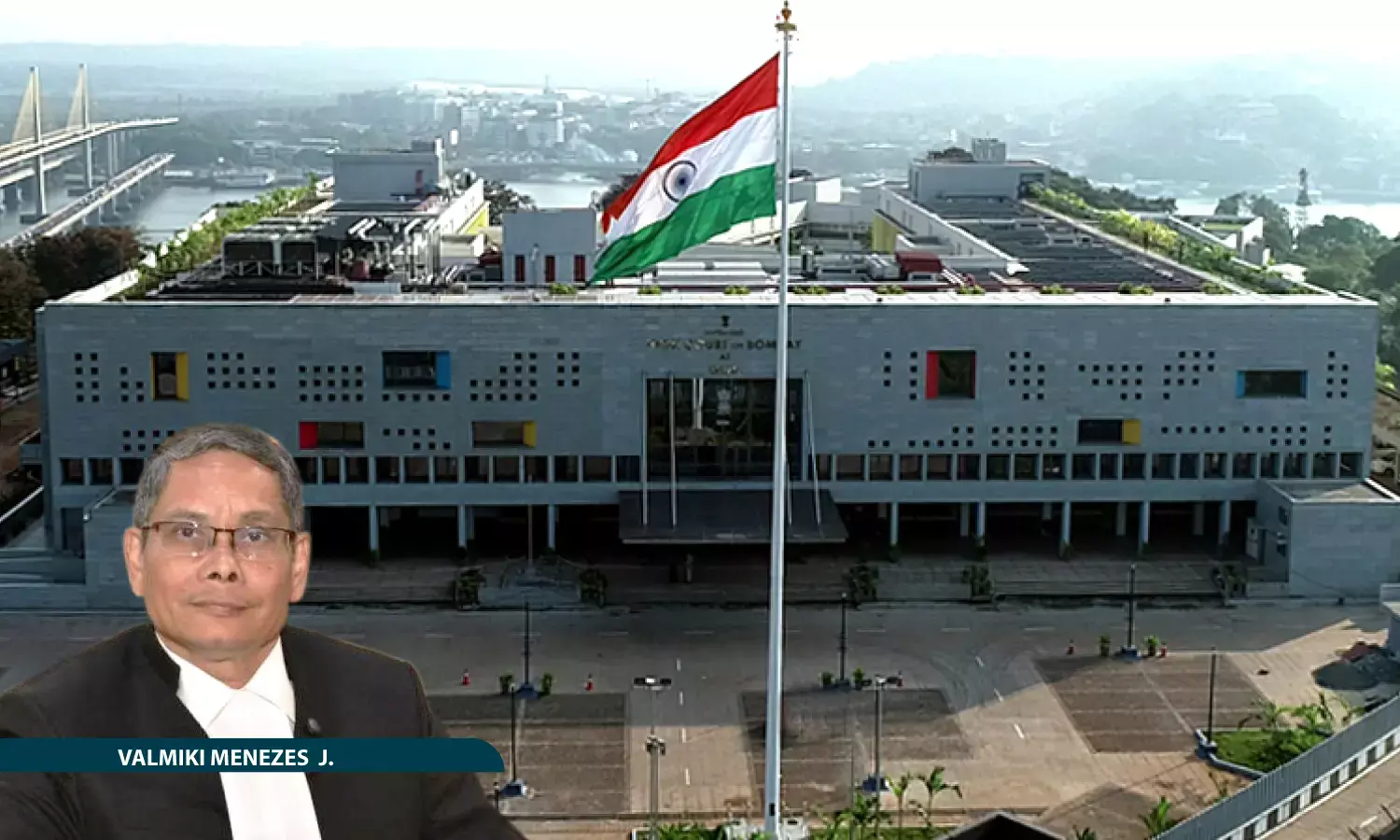Advocates Can Represent Parties In Cases Before Senior Citizens Maintenance Tribunal: Bombay High Court
The Bombay High Court noted that Section 17 of the Maintenance and Welfare of Parents and Senior Citizens Act stands struck down across India in view of Kerala High Court’s Judgment striking it down for being ultra vires Section 30 of the Advocates Act.

Justice Valmiki Menezes, Bombay High Court, Goa
The Bombay High Court held that in all cases pending before the Senior Citizens - Maintenance Tribunals, where an Advocate puts in an appearance for any of the parties, he would have the right of audience and to plead on behalf of the parties in the case before such Tribunal.
The Court noted that Section 17 of the Maintenance and Welfare of Parents and Senior Citizens Act, 2007 stands struck down across India in view of Kerala High Court’s Judgment striking it down for being ultra vires Section 30 of the Advocates Act, 1961.
The Goa Bench held thus in a Writ Petition preferred against the Judgment of the Maintenance Tribunal (Deputy Collector).
A Single Bench of Justice Valmiki Menezes observed, “The effect, therefore of the Judgments of the Kerala High Court in K. G. Suresh (supra) would be that Section 17 stands struck down as being ultra vires Section 30 of the Advocates Act, 1961 in relation to the entire territory of India, which includes the State of Goa or any other State.”
The Bench elucidated that in all cases pending before the Maintenance Tribunals, where an Advocate puts in an appearance for any of the parties, he would have the right of audience and to plead on behalf of the parties in the case before such Tribunal, in terms of Section 30 of the Advocates Act.
Advocate Deepak Gaonkar appeared for the Petitioner while Advocate Sahil Sardesai appeared for the Respondents.
Case Background
The Maintenance Tribunal under Section 5 of the Maintenance Act had directed the Petitioner who was the son of the Respondent (mother), to pay a monthly maintenance of Rs. 10,000/- to her. During the pendency of the Petition before the High Court, the Petitioner had deposited the arrears of Rs. 1,30,000/- before the Registry, which was released under Order of the High Court in July 2024 in favour of the Respondent. The High Court had directed the Petitioner to continue payment of the said maintenance amount, last of which was deposited on March 6, 2025.
In total, he had deposited Rs. 1,30,000/-. His main contention was that the Tribunal passed the Order without holding any inquiry contemplated under Section 6(4) of the Maintenance Act and that there is no reasoning whatsoever in the Order to sustain the direction to him to pay Rs. 10,000/- maintenance per month. It was further submitted that the procedure laid down in the said Act and the Rules framed thereunder by the State Government was also not followed.
Reasoning
The High Court in the above regard, said, “Consequently, the Maintenance Tribunal ought to have proceeded to hear the matter, where the application seeking representation through an Advocate was sought, granting the parties assistance through legal counsel, instead of rejecting the application by the impugned order dated 06.04.2023.”
The Court noted that the impugned Order is contrary to the declared law. It added that since the entire case proceeded in the absence of representation of the Petitioner through an Advocate, who had applied for representing through Application which was rejected, this would vitiate the final Order and Judgment, which would have to be set aside also on this ground.
“Considering all these aspects of the matter, the impugned order cannot be sustained and is hereby quashed and set aside. Consequently, Case No.DC/SDO/MAP/Maint-Claim/2020 is remanded back to the Maintenance Tribunal at Mapusa for fresh consideration in the light of the observations made above. The Maintenance Tribunal shall immediately refer the dispute to the Conciliation Officer, which it may appoint either on its own motion or may refer the matter to the Maintenance Officer appointed by the State Government under Section 18 of the Act, conduct conciliation in the matter and try to arrive with an amicable solution for the issue”, it further directed.
The Court ordered that the Conciliation Officer appointed shall submit its findings to the Tribunal within one month from the date of reference and the said procedure is to be undertaken after including three daughters who shall be impleaded in the proceedings before conciliation commences.
“In the event of failure of the Conciliation Proceedings, it is for the Tribunal to carry out a summary inquiry in terms of Section 8 of the Act and with Rule 13 Sub Clause (iv) and thereafter pass its order. While passing this order, considering that the Petitioner has deposited an amount of Rs. 1,30,000/- (One Lakh Thirty Thousand only) before the Registry of this Court till date, the Tribunal shall give due weightage to the amount deposited and consider this position while passing orders”, it also observed.
The Court clarified that the entire procedure, after this case is remanded back to the Tribunal, shall be completed within three months and the parties may be represented by a legal practitioner or Advocate if they so desire.
“Until disposal of the Maintenance Application, the Petitioner has agreed to continue paying a monthly maintenance of Rs. 3,000/-(Rupees Three Thousand only) into the account of the Applicant/Respondent No.1 on the 5th of every month. This amount could also be considered by the Tribunal while passing of its order”, it concluded.
Accordingly, the High Court disposed of the Writ Petition.
Cause Title- Santosh Savlaram Morajkar v. Sumitra Savlaram Moraskar & Anr. (Neutral Citation: 2025:BHC-GOA:919)


